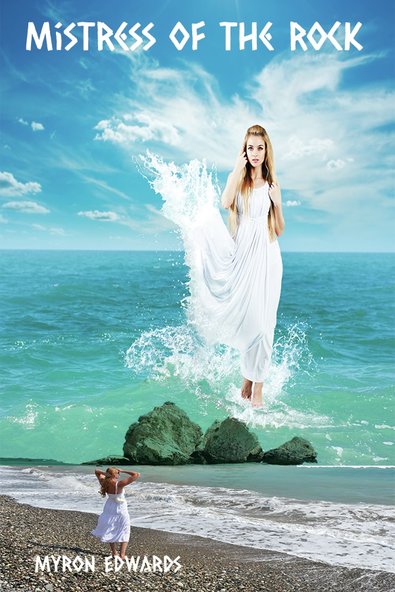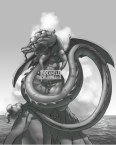Mistress of the Rock

At Paphos, the plane touched down around 4pm, the sun still hot as the troops left the aircraft and thumped down the metal stairs to the awaiting trucks, boarding twenty men at a time. Richard took the last place at the back of his truck. The engine roared with life and with all formalities of customs and immigration dispensed with, it began to rumble along the coastal road out of Paphos. After all, this was war, albeit secretly hosted on Cyprus.
This was Richard’s first visit to the island and from what he could see from the back of the truck it looked like a fine place to visit. From his small vantage point at the back, there seemed to be a good deal of activity going on, with lots of cars and people hurrying about. And amongst them was a collection of Greek Cypriot soldiers kitted out in green camouflage uniforms waiting along the roadside.
In this tourist-like atmosphere it was all too easy to forget that this was a divided land, invaded by the Turks in 1974, after an unsuccessful coup by the Greeks led by then-President and Archbishop Makarios. The island was divided by a thin green line which ran from the North to the South and was policed by the UN. Under such circumstances the fragile peace inevitably seemed vulnerable, yet it held.
The green line was a constant reminder to the Cypriot people in the south that their island was occupied—at least some of it including the wonderful beach resorts of Kyrenia and Famagusta, which were cut off and entrenched with mine fields and guarded by Turks.
These resorts had once been deemed to be among the classiest in the Mediterranean, with hotels and restaurants patronised by tourists from the world over. Only now, these fine accommodations and eateries were home to the rats, snakes and scorpions that occupied them. The analogy of vermin in these occupied resorts was a good description of the occupiers for many Greeks. Still, it remained a sad and sorry state of affairs that those who were about to become involved in a new conflict could not resolve this one first. Perhaps one day they would try.
As the truck started to move out of town, the convoy meandered along the picturesque road towards the base at Episkopi. The sun had begun to dim and the road became windier, as the trucks struggled round and around the bends, slowly at first then accelerating through the gears to gain momentum. The driver purposely crunching the gears from time to time just to make sure none of his occupants had fallen asleep. The inside of the truck was hot, the new temperature something the soldiers were not yet acclimatised to. As the convoy reached a tight bend, one of the guys at the front looked out of the canvas window and shouted to the rest of his companions. ‘That’s Aphrodite’s Rock.’
Richard looked out of the back of the open truck and saw one large rock embedded in the shore and two smaller ones rooted in the sea. The sun reflected on their colour, making them shimmer against the stunning blues of the Mediterranean. The white tufts of surf lapping against the base of the rocks as if licking them.
‘Petra Tou Romiou the Greeks call it, birthplace of Aphrodite. Goddess of LOVE,’ purposely accentuated to make an impact.
‘What, those old rocks?’ came Richard’s somewhat bemused retort.
This was Richard’s first visit to the island and from what he could see from the back of the truck it looked like a fine place to visit. From his small vantage point at the back, there seemed to be a good deal of activity going on, with lots of cars and people hurrying about. And amongst them was a collection of Greek Cypriot soldiers kitted out in green camouflage uniforms waiting along the roadside.
In this tourist-like atmosphere it was all too easy to forget that this was a divided land, invaded by the Turks in 1974, after an unsuccessful coup by the Greeks led by then-President and Archbishop Makarios. The island was divided by a thin green line which ran from the North to the South and was policed by the UN. Under such circumstances the fragile peace inevitably seemed vulnerable, yet it held.
The green line was a constant reminder to the Cypriot people in the south that their island was occupied—at least some of it including the wonderful beach resorts of Kyrenia and Famagusta, which were cut off and entrenched with mine fields and guarded by Turks.
These resorts had once been deemed to be among the classiest in the Mediterranean, with hotels and restaurants patronised by tourists from the world over. Only now, these fine accommodations and eateries were home to the rats, snakes and scorpions that occupied them. The analogy of vermin in these occupied resorts was a good description of the occupiers for many Greeks. Still, it remained a sad and sorry state of affairs that those who were about to become involved in a new conflict could not resolve this one first. Perhaps one day they would try.
As the truck started to move out of town, the convoy meandered along the picturesque road towards the base at Episkopi. The sun had begun to dim and the road became windier, as the trucks struggled round and around the bends, slowly at first then accelerating through the gears to gain momentum. The driver purposely crunching the gears from time to time just to make sure none of his occupants had fallen asleep. The inside of the truck was hot, the new temperature something the soldiers were not yet acclimatised to. As the convoy reached a tight bend, one of the guys at the front looked out of the canvas window and shouted to the rest of his companions. ‘That’s Aphrodite’s Rock.’
Richard looked out of the back of the open truck and saw one large rock embedded in the shore and two smaller ones rooted in the sea. The sun reflected on their colour, making them shimmer against the stunning blues of the Mediterranean. The white tufts of surf lapping against the base of the rocks as if licking them.
‘Petra Tou Romiou the Greeks call it, birthplace of Aphrodite. Goddess of LOVE,’ purposely accentuated to make an impact.
‘What, those old rocks?’ came Richard’s somewhat bemused retort.

